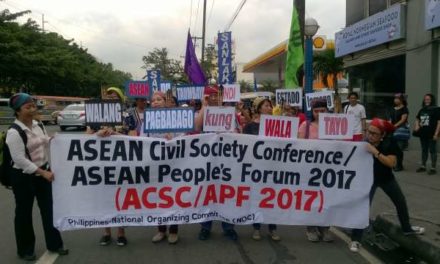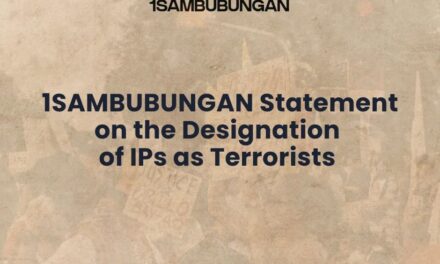International Conference of Governments and Social Movements
Introduction
The core partners in the Regionalisms Programme organised a well-attended Regionalisms Workshop in Belem, which was framed in the context of the Global crisis. This Workshop, which included a substantive update and exchange of experience from regional networks from ASEAN, SAARC, SADC, Latin America and Caribbean and Europe, ended with a call to engage the governments on the issue of regions as a very important arena for addressing the global crisis. In a follow-up Caucus meeting, which consolidated the next phase of regionalisms work under the framework of the “People’s Agenda for Alternative Regionalisms”, the proposal was made to hold an International Conference in conjunction with the Mercosur Summit, due to be held in Paraguay in early July.
Rationale
We are experiencing an unprecedented systemic crisis. The global financial markets are unravelling at great speed and have triggered a crisis that transcends the financial and banking sector and impacts on the real economy. Concurrently, there is a convergence of other crises: energy, food and climate. This current crisis has its roots in a model of overproduction and over-consumption; promoted by free trade policies and an unsustainable exploitation of natural and energy resources. This indicates the exhaustion and failure of the prevailing neoliberal development model.
Finding solutions to the crises is urgent, and today it is at the core of the agenda of both social movements and governments. For countries in the different regions, regional integration appears as a way toovercome the global economic crisis through the development of solidarity and dynamic intra-regional economic ties.
Regional integration presents itself as an alternative and viable solution among the other predominant responses in current debates: the construction of national solutions within the limits of each country’s resources and markets; or, the pursuit and deepening of trade and investment liberalisation and the opening to international markets, even if these global markets are collapsing and have lost their capacity to generate dynamism for national economies.In this context, re-thinking regional integration as a solution to thecrisis can give a powerful impulse to building an alternative development project in each region (Latin America, Asia, Africa and Europe) that is more sustainable and equitable than the current development model which countries follow today.
This could and should be a progressive response both to the failure of neoliberal globalisation as well as addressing the other crises experienced today in the food, climate, energy and finance sectors.
Alternative regional integration offers more opportunities for the people and countries of the South, because it puts the principles of solidarity over those of wild competition and free market. As is known, and is proven by the crisis, the free market has not led to social justice.
The current global crisis, moreover, also presents a historic opportunity. Social movements and civil society have the chance to develop a strategic response and not merely seek short term solutions relying on the institutions and policies that have caused the crisis in the first place.
At the same time, the current regional spaces are contested arenas. It is crucial, therefore, that social movements and governments search and seek for common strategies.
The objective of this International Conference will be to advance the debate among governments, regional/international bodies, policy makers, parliamentarians and social movements from the following regions: Mercosur, Andean Community, ALBA, SADC, SAARC, ASEAN and EU about the possibilities to respond to these crises through regional alternatives and a model of regional integration that promotes a change in the development model of the regions.
Conference Specific
Objectives:
– Engage LAC governments on the agenda of alternative regional integration as a key strategy to advance the struggle against neoliberal globalisation and to address the global crisis.
– Deepen exchange between social movements and governments and share analysis and perspectives on the challenges facing the current regional formations as well as on the innovative and progressive governmental regional alternatives currently emerging and clarify the strategic role of civil society as actors for alternative regionalism.
– Explore the parameters of searching and seeking for appropriate common strategies that will strengthen the pursuit of integration processes that are built on the principle of “integration of the people, people-centered and people-driven regional integration”.
Conference Outcomes:
It is foreseen that preparation for the Conference will include the preparation of Papers on:
– the issues of the proposed Agenda which will aim to level off on the analysis and state of play regarding the positioning of theregional networks on the identified regions;
– regional proposals/strategies addressing alternatives on major crises: finance; food, energy and climate.
– a plan of action/recommendations on how to carry forward the momentum of the conference among civil society networks and between CSOs and governments, taking the particularities and asymmetries of each region into account.
Conference Organisers:
Hemispheric Social Alliance, Paraguayan Committee
People’s Agenda for Alternative Regionalisms (PAAR)
Focus on the Global South and Transnational Institute (TNI).
Supported by
Presidency of the Republic of Paraguay (holding current Presidency of Mercosur)
In cooperation with:
Trade Union Confederation of the Americas (TUCA), Southern African People’s Solidarity Network (SAPSN), People’s SAARC, Solidarity for Asian People’s Advocacy (SAPA), ATTAC Europe (tbc), TWNAfrica (tbc), Transform Europe (tbc)
Place and Dates
Asunción del Paraguay, 21-24 July 2009
Tentative Programme
The 4 day programme will include:
– 2 days International Conference of governments and social movements “Regional Integration: a new opportunity to face the crises” organised in the form of Plenary Panels. Each panel will include representatives from social movements/civil society and governments officials from the different countries/regions.
– Meeting with Presidents
– Caucus Meeting of the initiative “People’s Agenda for Alternative Regionalisms”
– People’s Summit of Mercosur: Panels and Seminars (organised by Latin American movements).


![[Event Invitation] The Hague Tribunal Judgment on Conflicting Claims in the South China Sea: Implications for the Philippines, China, the United States, and ASEAN](https://focusweb.org/wp-content/uploads/2017/04/spratlys_1-339x264.png)






